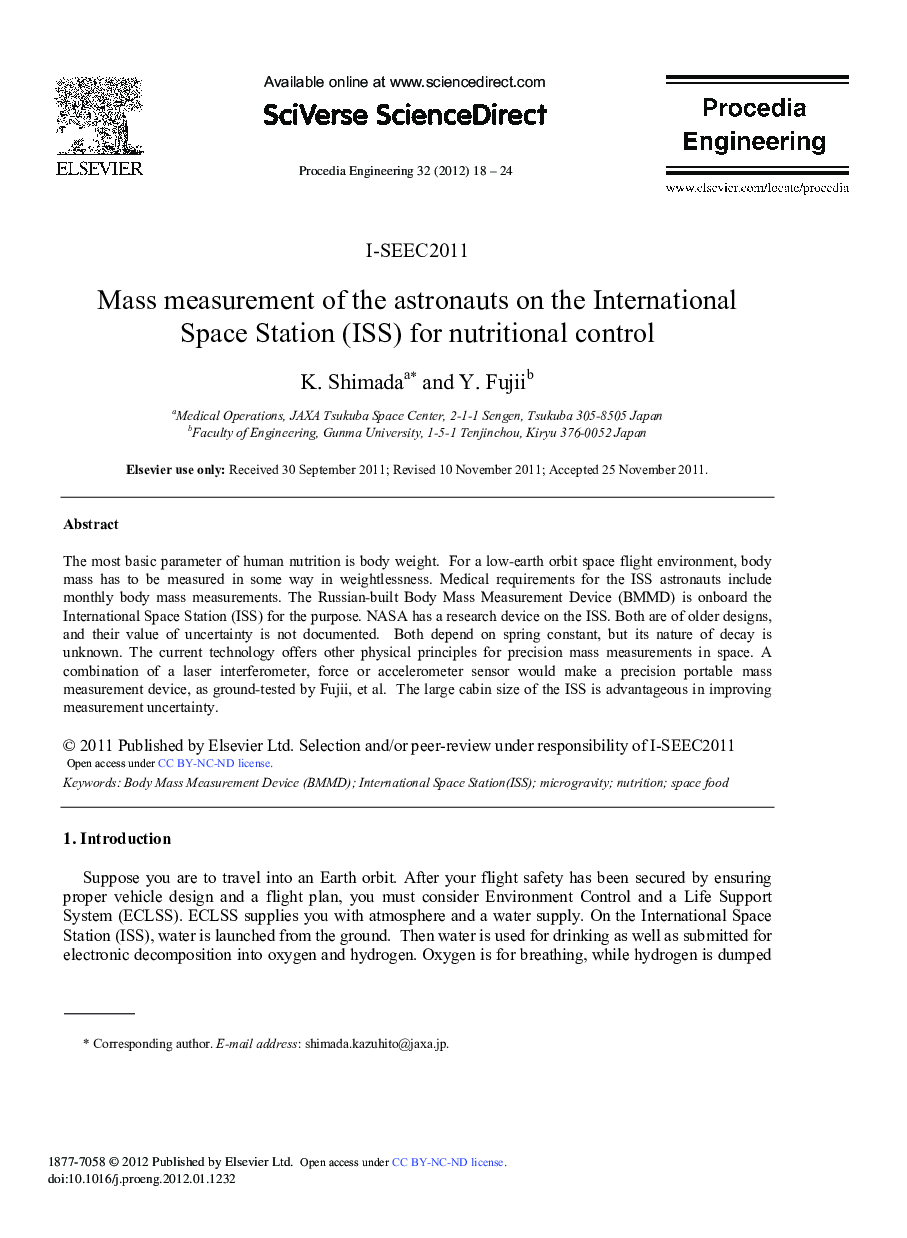| Article ID | Journal | Published Year | Pages | File Type |
|---|---|---|---|---|
| 862784 | Procedia Engineering | 2012 | 7 Pages |
The most basic parameter of human nutrition is body weight. For a low-earth orbit space flight environment, body mass has to be measured in some way in weightlessness. Medical requirements for the ISS astronauts include monthly body mass measurements. The Russian-built Body Mass Measurement Device (BMMD) is onboard the International Space Station (ISS) for the purpose. NASA has a research device on the ISS. Both are of older designs, and their value of uncertainty is not documented. Both depend on spring constant, but its nature of decay is unknown. The current technology offers other physical principles for precision mass measurements in space. A combination of a laser interferometer, force or accelerometer sensor would make a precision portable mass measurement device, as ground-tested by Fujii, et al. The large cabin size of the ISS is advantageous in improving measurement uncertainty.
